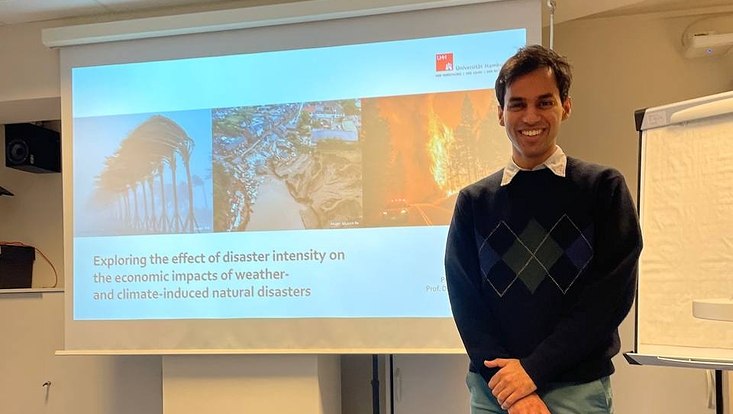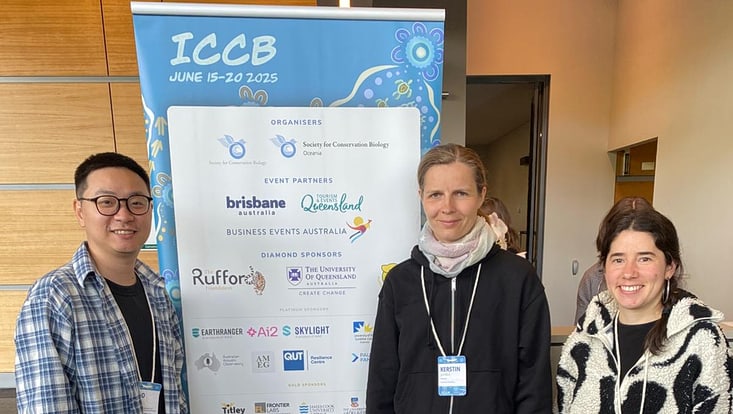Vidur Mithal successfully presented his MSc Thesis
12 February 2024

Photo: Vidur Mithal/FNK
Congratulations to Vidur Mithal for successfully presenting his MSc Thesis!
Vidur completed the Master's degree program in Integrated Climate System Sciences at Universität Hamburg and works as a Research Assistant in the Climate Extremes group of Prof. Dr. Jana Sillmann. His MSc Thesis "Exploring the effect of disaster intensity on the economic impacts of weather- and climate-induced natural disasters" was supervised by Prof. Dr. Jana Sillmann (Universität Hamburg) and Prof. Dr. Jakob Zscheischler (UFZ Leipzig and TU Dresden).
Could you summarize what you did in your MSc Thesis in a few sentences?
In my thesis, I explore the relationship between the intensity and economic impacts of weather- and climate-induced natural disasters such as heatwaves and cold waves. Using new datasets on disaster occurrence and economic productivity, I show that extreme climate indices are an effective way of representing disaster intensity, and that they can be used to explain the magnitude of economic losses from disaster events in certain sectors. Using this approach, I also identify possible compounding effects in the economic impacts of disasters.
What plans do you have for the future?
In March, I start a PhD at the International Max Planck Research School for Earth System Modelling (IMPRS-ESM) at the Max-Planck-Institute for Meteorology and the University of Hamburg, where I will focus on modelling the impacts of climatic extremes on agriculture. I will be supervised by Dr. Leonard Borchert and co-supervised by Prof. Jana Sillmann and Prof. Johanna Baehr, and I am looking forward to continued collaboration within the Climate Extremes group, and with other climate researchers in Hamburg and beyond. In the future, I hope to apply my interdisciplinary research training to better understand the impacts of climate change and extremes on society, and enable those most vulnerable to better deal with these impacts.
Why did you study climate science?
After my bachelor's degree in physics, I knew I wanted to do something more interdisciplinary, and which could have a more direct positive influence on society. Climate science seemed like the perfect option since it combines a strong basis in the natural sciences with several other disciplines, and the field is becoming increasingly relevant as climate change worsens. The MSc Integrated Climate System Sciences program at the University of Hamburg provided the perfect opportunity to explore these interests in an interdisciplinary and international environment.


